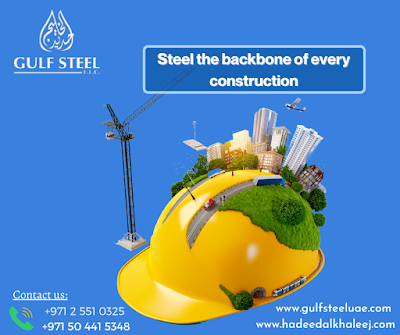The need for sustainability in the design, construction, and
operation of buildings is a reality in today’s world. When you add embodied
carbon—the energy and emissions from materials and construction—that number
accounts for around 50% of the total carbon emissions.
Necessary measures and alternatives need to be looked into
reducing carbon emission in the construction industry. This means not only
focusing on technological change but also paying a closer look at the materials
that we use in the process of construction.
It is important to limit carbon-intensive materials. For
products with high carbon footprints like aluminum, plastics, and foam
insulation, thoughtful use is essential. For instance, while aluminum may
complement the aesthetics of your project, it is still important to use it
judiciously because of its significant carbon footprint. Steel is a brilliant
material to reduce carbon emissions.
Steel’s role is at the core of the transition to net-zero
energy buildings.
Here are four reasons why steel has its place in the transition toward net-zero:
- Energy Efficiency –
steel’s role in energy efficiency is its ability to harness and transfer
renewable energy. Examples include the steel mountings of roof solar
panels, roof-integrated solar heat collectors, and geothermal energy
piles.
- Thermal mass – steel can
quickly store/release heat when needed. For example, phase change
materials (PCMs) can be used in floors, walls, or ceilings to capture and
store thermal energy, enabling a constant room temperature with less
energy demand.
- Airtightness - steel
sandwich panels and windows contribute to maintaining a building’s
airtightness, thereby reducing heat losses and contributing to energy
savings.
- Sustainability – steel’s ability to be pre-fabricated in specific dimensions or modules in a
factory means that components are made available on-site when needed. The ability for steel to be designed for deconstruction and alternative use implies that the potential to create new future steel is less of a
necessity. Being non-organic, steel’s ability to be recycled again and again without loss of quality means there will in the future be less demand for virgin raw materials.
Established in 1992, Gulf Steel is a leading Steel Manufacturer in UAE. Known for their
grade A quality steel, Gulf Steel is known to provide CARES-approved steel. Led by a strong management team,
Gulf Steel is one of the most reputable steel producers in UAE.

